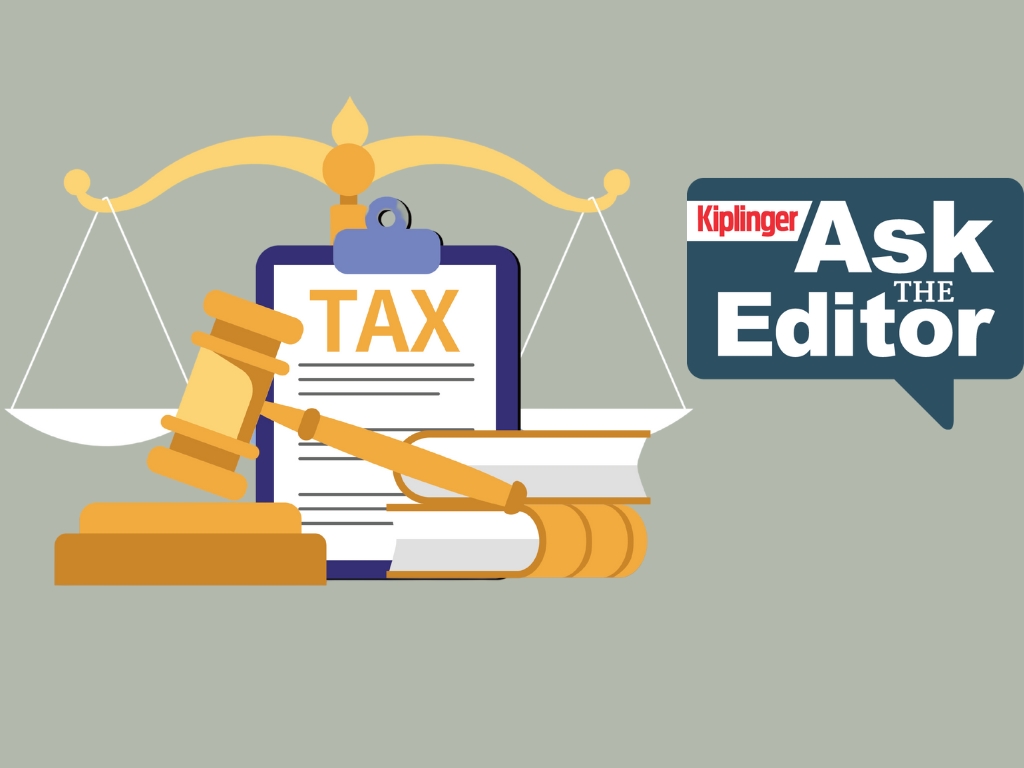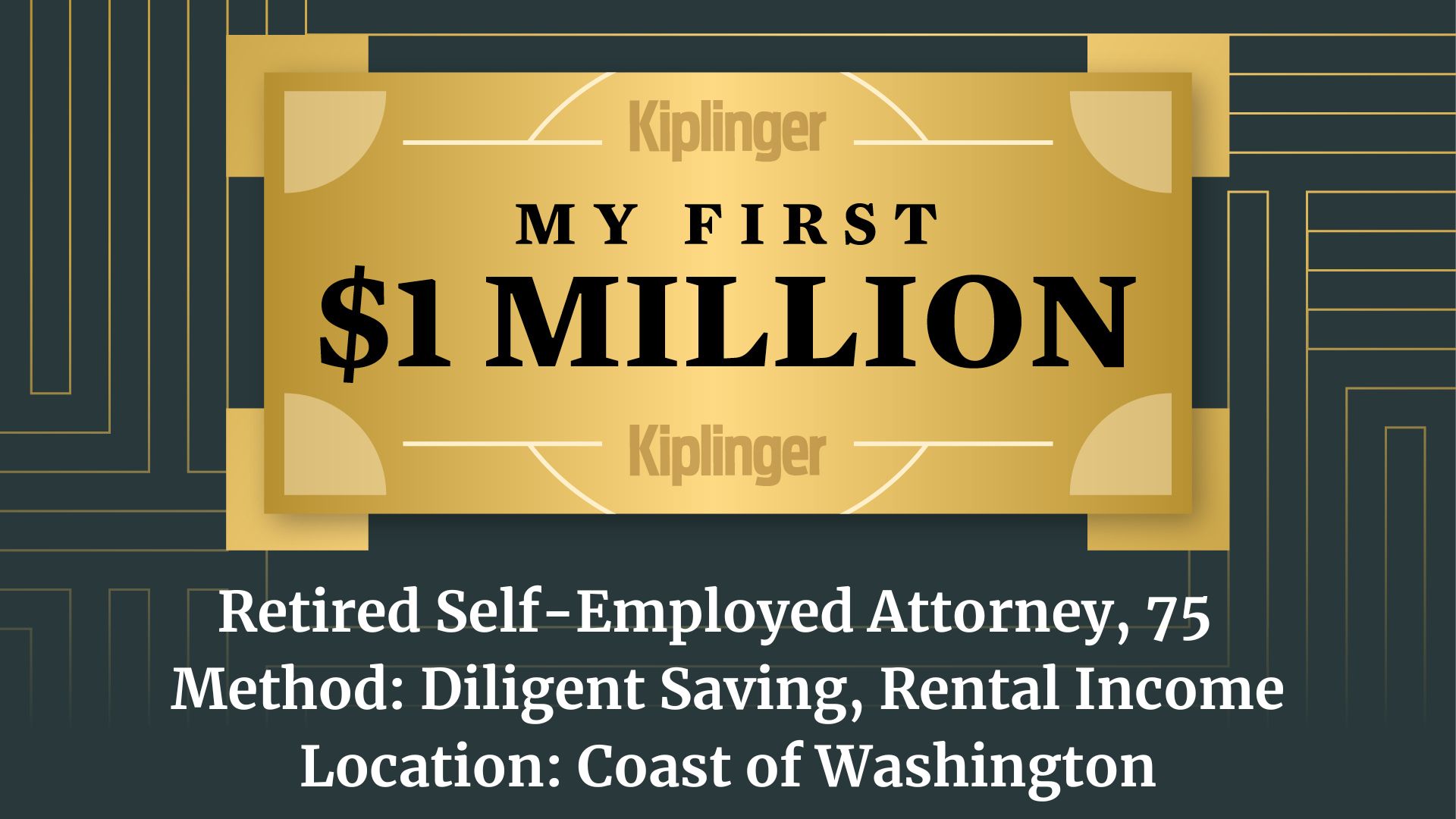The Six Best Places to Retire in New England
Thinking about a move to New England for retirement? Here are the best places to land based on quality of life and other criteria.


Erin Bendig
Turning leaves for fall. Blankets of snow for winter. Popping blooms for spring. White-sand beaches for summer. Although it's not one of the cheapest places to live, every season brings a new reason to love New England.
But the area's typically high costs, unfavorable tax policies and harsh winters are common deterrents for retirees. But some New England states have overcome potential turn-offs and drawn an influx of newly retired residents. In 2024, Vermont and Rhode Island were among the top 10 states people moved to for retirement, according to United Van Lines 48th Annual National Movers Study.
If you're pondering a move to New England while reviewing your retirement checklist, we suggest you consider the following spots. We highlighted one great retirement destination in every state, taking into account living costs, safety, median incomes and poverty rates, as well as residents' sense of well-being and the availability of recreational and healthcare facilities.
Our six choices are in Connecticut, Maine, Massachusetts, New Hampshire, Rhode Island and Vermont.
The list is ordered alphabetically by state. See "How We Picked the Best Places to Retire" at the end of the list for details on our data sources and methodology.
Turning leaves for fall. Blankets of snow for winter. Popping blooms for spring. White-sand beaches for summer. Although it's not one of the cheapest places to live, every season brings a new reason to love New England.
But the area's typically high costs, unfavorable tax policies and harsh winters are common deterrents for retirees. But some New England states have overcome potential turn-offs and drawn an influx of newly retired residents. In 2024, Vermont and Rhode Island were among the top 10 states people moved to for retirement, according to United Van Lines 48th Annual National Movers Study.
If you're pondering a move to New England while reviewing your retirement checklist, we suggest you consider the following spots. We highlighted one great retirement destination in every state, taking into account living costs, safety, median incomes and poverty rates, as well as residents' sense of well-being and the availability of recreational and healthcare facilities.
Our six choices are in Connecticut, Maine, Massachusetts, New Hampshire, Rhode Island and Vermont.
The list is ordered alphabetically by state. See "How We Picked the Best Places to Retire" at the end of the list for details on our data sources and methodology.
1. Wallingford, Connecticut
- City population: 44,606
- Share of population 65+: 17.3%
- Cost of living: 109.2 or 9.2% higher than the US average
- Average income: $62,640
- Well-being score: 66
- Connecticut State Tax Guide
Like much of the Northeast, Connecticut is known to be a high-cost area, and Wallingford, Connecticut is no different. This cozy town is blessed with many excellent healthcare options, recreational opportunities, and a strong sense of community. It's easy to fit in in Wallingford. Top-rated Gaylord Hospital takes your health seriously, and the senior center has a vaccine clinic, hearing and vision clinic, and fitness classes, as well as activities like billiards, cards, dancing, pickleball and shuffleboard.
In town, retirees can enjoy amenities such as the public library or the Paul Mellon Arts Center and the Toyota Oakdale Theater. Dine out at local hotspots like Boggs, Serafino's Ristorante Italiano or Arles. For the night owls, check out Center Street Brewing Company and New England Cider Company, or spend an afternoon at the vineyard — Paradise Hills Vineyard and Winery and Gouveia Vineyard.
2. Portland, Maine
- City population: 68,063
- Share of population 65+: 15.3%
- Cost of living: 112.5 or 12.5% above the national average
- Average income: $86,400
- Well-being score: 70
- Maine State Tax Guide
The largest city in Maine, Portland offers a lively downtown and plenty of urban-esque amenities amidst the great outdoors of the Pine Tree State. You can enjoy museums, theaters and an array of eclectic dining. The flagship L.L. Bean store in nearby Freeport is a must-see for many visitors, but resident shoppers also flock to Portland’s unique boutiques and outlets.
All the while, you’re never too far from the area's many beaches. That means ample opportunity to lounge on the shore or dive into water-based activities including fishing, kayaking, sailing and even surfing. And of course, hiking and biking trails abound — perfect in the (much) colder months, too, for cross-country skiing and snowshoeing.
3. Pittsfield, Massachusetts
- City population: 43,890
- Share of population 65+: 19.9%
- Cost of living: 95.9 or 4.1% below the national average
- Average income: $59,522
- Well-being score: 59
- Massachusetts State Tax Guide
New England is notoriously expensive, but Pittsfield, located in the western part of Massachusetts, offers a small pocket of relative affordability — more reasonably priced than Boston and Cambridge, where living costs are, respectively, 50.1% and 44.7% above the U.S. average. Cost of living in Pittsfield is 95.9, or 4.1% lower than the national average. Housing in Pittsfield is also notably affordable: The average Pittsfield home value is $263,800, which is significantly lower than the U.S. median value of $338,100. You'll pay upwards of $656,500 in Boston.
Leaf peeping in the fall may be enough to draw you to the Berkshires. But you have plenty to enjoy all year round, including excellent sites for camping, fishing, hiking and skiing. Nearby, enjoy musical performances at the Tanglewood Music Center, the summer home of the Boston Symphony Orchestra. There’s also world-class art at the Clark Art Institute in Williamstown and the Massachusetts Museum of Contemporary Art (MASS MoCa, for short) in North Adams.
Pittsfield, Massachusetts also made our list of 12 places to retire if you're sick of the heat.
4. Laconia, New Hampshire
- City population: 16,786
- Share of population 65+: 21.1%
- Cost of living: 102.2 or 2.2% higher than the U.S. average.
- Average income: $16,786
- Well-being score: 52
- New Hampshire State Tax Guide
Tucked between Lake Winnipesaukee and Winnisquam Lake, Laconia has been dubbed "The City on the Lake," the home city to New Hampshire's Lakes Region. That means plenty of beaches and water-related activities for you in the warmer months. Other outdoor recreation abounds nearby, too. Gunstock Mountain Resort in neighboring Gilford, for example, offers camping, ziplining and snow sports, as well as fairs, events and dining options.
Local crime may be worth noting: Laconia violent crime rate is 26.8. (the U.S. average is 22.7). Lakeport, Laconia North and Interlaken Park/Pendleton Beach as the safest Laconia neighborhoods.
Plus, the Granite State's tax situation for retirees is solid, too. Social Security benefits are not taxed, and income from retirement plans is exempt from New Hampshire's interest and dividends tax.
*For Belknap County, where Laconia is located.
5. Providence, Rhode Island
- City population: 188,812
- Share of population 65+: 14.9%
- Cost of living: 108.8 or 8.8% above the national average
- Average income: $55,787
- Well-being score: 63
- Rhode Island State Tax Guide
Home to Ivy League Brown University and the world-renowned Rhode Island School of Design, as well as a handful of other colleges, Providence can be a great fit for retired intellectuals and artists. They'll have no shortage of things to do, with the schools offering gallery nights, performing arts events, educational opportunities and more. And the schools' presence has helped draw a variety of restaurants and businesses to the area, too.
Unfortunately, higher-than-average tax rates and home values can be prohibitive throughout the tiny state. The average effective property tax rate in Rhode Island is 15.88%, and the average Providence home value is $350,800, compared to the national average home value of $338,100.
6. Burlington, Vermont
- City population: 44,703
- Share of population 65+: 12.1%
- Cost of living: 112.4 or 12.4% above the national average
- Average income: $59,331
- Well-being score: 74
- Vermont State Tax Guide
This small mountain city on the shores of Lake Champlain is a picturesque setting for tree-hugging retirees. Outdoor recreation is plentiful with miles of hiking and biking paths, nearby beaches where you can swim, kayak or paddleboard in the warmer months, and numerous skiing options. An eco-friendly vibe permeates the town, from the businesses bolstering the city's economy, such as household-products maker Seventh Generation, to the local food movement feeding the neighborhood.
But being green isn't easy on your wallet. Taxes and living costs are high. While the average home value is $338,100 for the U.S., it climbs to $478,900 in Burlington. Rent will set you back about $2,250 per month. The median cost of a semi-private room in a nursing home in Burlington was a hefty $164,250 per year in 2024, according to Genworth.
But at least you can save money on academic pursuits. The University of Vermont will cover tuition costs for state residents aged 65 and older who wish to take a class, even those for credit.
How we picked the best places to retire
To pinpoint one great retirement destination in each state, we weighed a number of factors:
- Cost of living comes from Bestplaces.com
- Average income for population 65+ comes from Point2homes.com.
- Household incomes, poverty rates and number of healthcare facilities are from the U.S. Census Bureau.
- Community well-being and physical well-being scores are provided by digital health company Sharecare, in collaboration with Gallup. These are two of the five elements of well-being that make up the overall Gallup-Sharecare Well-Being Index. (The other three elements are purpose, social and financial well-being.) The index is calculated on a scale of 0 to 100 and based on more than 2.5 million nationally representative surveys. Community well-being is defined as "liking where you live, feeling safe and having pride in your community." Physical well-being is "having good health and enough energy to get things done daily." We display the community score for each place we chose.
- Population data, including the percentage of the population that is age 65 and older, is also provided by the Census Bureau. The figures are highlighted in these rankings for the benefit of readers, but were not factors in our methodology for ranking the best places to retire.
Related Content
Profit and prosper with the best of Kiplinger's advice on investing, taxes, retirement, personal finance and much more. Delivered daily. Enter your email in the box and click Sign Me Up.

Rapacon joined Kiplinger in October 2007 as a reporter with Kiplinger's Personal Finance magazine and became an online editor for Kiplinger.com in June 2010. She previously served as editor of the "Starting Out" column, focusing on personal finance advice for people in their twenties and thirties.
Before joining Kiplinger, Rapacon worked as a senior research associate at b2b publishing house Judy Diamond Associates. She holds a B.A. degree in English from the George Washington University.
- Erin BendigPersonal Finance Writer
-
 Ask the Editor — Tax Questions on Inherited IRAs
Ask the Editor — Tax Questions on Inherited IRAsAsk the Editor In this week's Ask the Editor Q&A, we answer tax questions from readers on the rules on inheriting IRAs.
-
 I Asked Experts When It's Worth Splurging on Beauty and Skincare — and When You Can Save
I Asked Experts When It's Worth Splurging on Beauty and Skincare — and When You Can SaveSmart Shopping Experts agree that while you don't have to spend three figures on your products, some higher-priced items have value.
-
 The Retirement 'Rule of $1 More'
The Retirement 'Rule of $1 More'The 'Rule of $1 More' explains how to plan for critical retirement thresholds. Because "you don't want to step off a cliff just because of $1 more."
-
 My First $1 Million: Retired Self-Employed Attorney, 75, Coast of Washington
My First $1 Million: Retired Self-Employed Attorney, 75, Coast of WashingtonEver wonder how someone who's made a million dollars or more did it? Kiplinger's My First $1 Million series uncovers the answers.
-
 Retiring Early? This Strategy Cuts Your Income Tax to Zero
Retiring Early? This Strategy Cuts Your Income Tax to ZeroWhen retiring early, married couples can use this little-known (and legitimate) strategy to take a six-figure income every year — tax-free.
-
 Ditch the Golf Shoes: Your Retirement Needs a Side Gig
Ditch the Golf Shoes: Your Retirement Needs a Side GigA side gig in retirement can help combat boredom, loneliness and the threat of inflation eroding your savings. And the earlier you start planning, the better.
-
 Roth IRA Conversions in the Summer? Why Now May Be the Sweet Spot
Roth IRA Conversions in the Summer? Why Now May Be the Sweet SpotConverting now would enable you to spread a possible tax hit over more than one payment while reducing future taxes.
-
 I'm an Insurance Expert: This Is How Your Insurance Protects You While You're on Vacation
I'm an Insurance Expert: This Is How Your Insurance Protects You While You're on VacationHere are three key things to consider about your insurance (auto, property and health) when traveling within the U.S., including coverage for rental cars, personal belongings and medical emergencies.
-
 Investing Professionals Agree: Discipline Beats Drama Right Now
Investing Professionals Agree: Discipline Beats Drama Right NowBig portfolio adjustments can do more harm than good. Financial experts suggest making thoughtful, strategic moves that fit your long-term goals.
-
 'Doing Something' Because of Volatility Can Hurt You: Portfolio Manager Recommends Doing This Instead
'Doing Something' Because of Volatility Can Hurt You: Portfolio Manager Recommends Doing This InsteadYes, it's hard, but if you tune out the siren song of high-flying sectors, resist acting on impulse and focus on your goals, you and your portfolio could be much better off.
